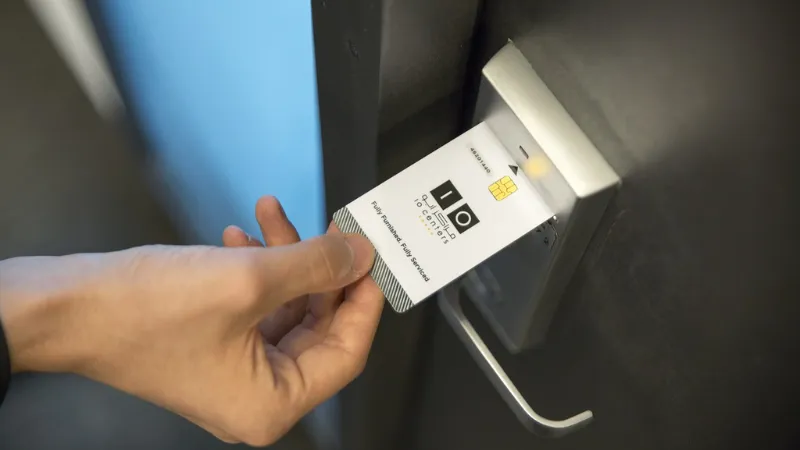
When preparing to launch a startup, there are numerous decisions to make, and one of the most critical aspects is selecting the right payment systems. The way you handle payments directly affects customer experience, operational efficiency, and your ability to scale. From what payment methods to accept to how quickly transactions need to be processed, the choices you make now will shape the financial side of your business. Here are the essential payment considerations every startup should take into account before going live.
Choosing the Right Payment Methods to Accept
One of the first steps in setting up your payment system is deciding which payment methods to accept. In today’s digital world, offering a variety of payment options ensures that customers can easily complete their purchases. For e-commerce businesses, credit and debit cards are essential, as they are widely used by online shoppers. However, it’s important to consider additional options such as digital wallets like Apple Pay, Google Pay, and PayPal, which provide a smoother and more secure payment experience.
If your business operates internationally, it’s worth considering payment methods that are popular in specific regions to further enhance your reach and improve conversions. For startups offering subscription-based services, it's crucial to choose a payment system that supports recurring billing. This feature will help manage automatic renewals and ensure customer data remains secure, ultimately improving retention and reducing churn.
The Importance of Quick and Efficient Transactions
Speed is critical when it comes to payment processing. Customers expect a quick, seamless checkout experience, and delays can result in frustration and abandoned purchases. For startups, especially in fast-paced sectors like e-commerce or on-demand services, ensuring rapid transaction processing is key to maintaining customer satisfaction.
RECOMMENDED FOR YOU

Mentoring the Next Generation: Building Teacher Leaders for Lasting Impact
Team SR
Jan 2, 2026

Berlin-Based Talon.One Furthers its Incentives Engine Following €114m Funding
Team SR
Nov 26, 2025

Honest Review of Unit4 2025: The Software that’s Modernizing Small Government
Team SR
Dec 3, 2025
Consider how quickly your transactions need to be completed. For most e-commerce businesses, quick payment processing is essential to prevent cart abandonment and ensure smooth customer interactions. Similarly, for subscription-based services, fast payments help ensure cash flow remains steady, allowing for smoother operations.
Certain sectors rely on fast transactions to maintain customer trust and satisfaction. For example, in the food delivery industry, services like Uber Eats require fast payment processing to ensure customers can complete their purchases and receive their orders without delay. Similarly, in the online casino sector, fast payouts are essential to ensure players receive their winnings promptly. When searching for a quick withdrawal casino UK bettors often look for sites that prioritise speedy payouts and avoid delays. These smooth transactions keep players coming back and build trust between the player and the platform. Another example is the travel sector, where booking platforms and airlines increasingly offer instant payment confirmation and rapid processing to meet the needs of time-sensitive travellers. In all of these sectors, selecting a payment system that ensures fast, frictionless transactions is critical for staying competitive and maintaining a high level of customer satisfaction.
Security and Fraud Prevention
Security should be a top priority when setting up your payment system. Customers expect their payment details to be secure, and businesses must comply with stringent regulations to protect sensitive data. If your payment system is vulnerable to fraud or cyber-attacks, you risk losing not only money but also trust.
The Payment Card Industry Data Security Standard (PCI DSS) sets the benchmark for handling and storing card payment information securely. When selecting a payment provider, make sure that they are PCI DSS compliant and offer advanced security measures like encryption, tokenisation, and multi-factor authentication.
You should also consider adding fraud prevention tools to your payment system. Many payment processors offer fraud detection services that can help identify suspicious transactions and prevent chargebacks. This is particularly important for businesses that deal with large volumes of transactions, as chargebacks can quickly become costly and damage your reputation.
Managing Fees and Costs
When choosing a payment system, one of the most important considerations is the cost. Payment providers typically charge transaction fees, which can vary depending on the method of payment, the provider, and the country. For startups with tight margins, understanding these fees is crucial to maintaining profitability.
Credit card payments usually come with a fee of 1.5% to 3.5% per transaction. However, payment providers may charge additional fees for currency conversion, chargebacks, or even for just setting up an account. For startups, it’s important to understand all the associated fees and how they will impact your bottom line.
In addition to transaction fees, some payment providers also charge monthly maintenance fees, especially for those that offer additional features such as fraud protection or recurring billing. Compare the costs of different providers and determine which one offers the best balance between affordability and functionality. While low fees are important, ensure that the provider offers the features you need to run your business smoothly and securely.
Handling International Payments
If your startup has plans for global expansion, it’s essential to choose a payment provider that supports international transactions. Operating across borders involves handling multiple currencies, which brings additional complexities, including currency conversion rates, international transaction fees, and compliance with local regulations.
Choose a payment solution that can easily manage multiple currencies and offer competitive exchange rates. This will allow your customers to make payments in their local currency, improving the user experience and potentially increasing your conversion rates.
It’s also worth checking if your provider supports international payment methods that are popular in specific regions. For example, Alipay and WeChat Pay are popular in China, while many European customers prefer local bank transfers or SEPA payments. Offering these options can help you tap into local markets and make your business more appealing to international customers.
Customer Support and Dispute Resolution
Customer support is another key aspect to consider when selecting a payment provider. Whether it’s a technical issue or a dispute regarding a payment, having reliable and responsive customer support can help resolve problems quickly and efficiently.
Look for a payment provider that offers 24/7 support, ideally with multiple contact options such as live chat, phone, and email. This ensures that if a customer encounters an issue with a payment, you can resolve it promptly and maintain customer satisfaction.
In addition, consider how the provider handles chargebacks and disputes. Some payment systems offer chargeback protection, which can help you avoid losing money when customers dispute a payment. Understanding how these issues are handled and what support you’ll receive is essential for managing the financial aspects of your business.
Conclusion
Setting up a payment system is an essential part of preparing your startup for success. By carefully considering the payment methods to accept, ensuring fast and secure transactions, and keeping costs manageable, you will be well on your way to providing a seamless experience for both your customers and your business. As your startup grows, your payment needs may evolve, so choosing a flexible and scalable solution will allow you to adapt to new challenges and opportunities. Ultimately, a well-chosen payment system will not only streamline operations but also build trust with customers, paving the way for long-term growth.


 Follow us
Follow us Follow us
Follow us












